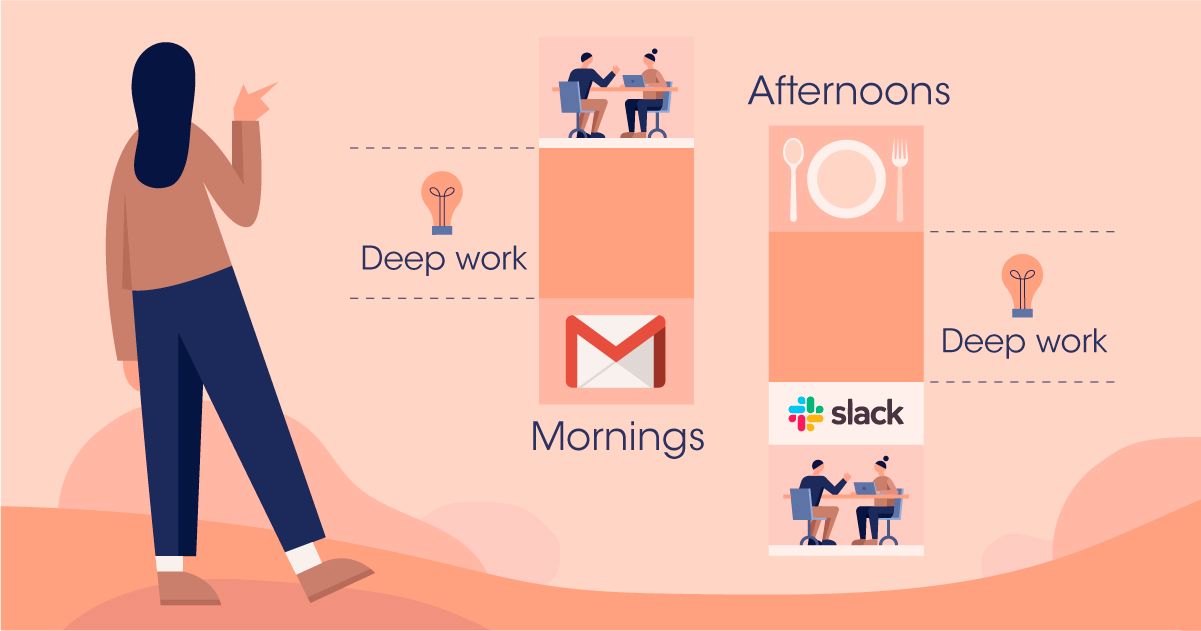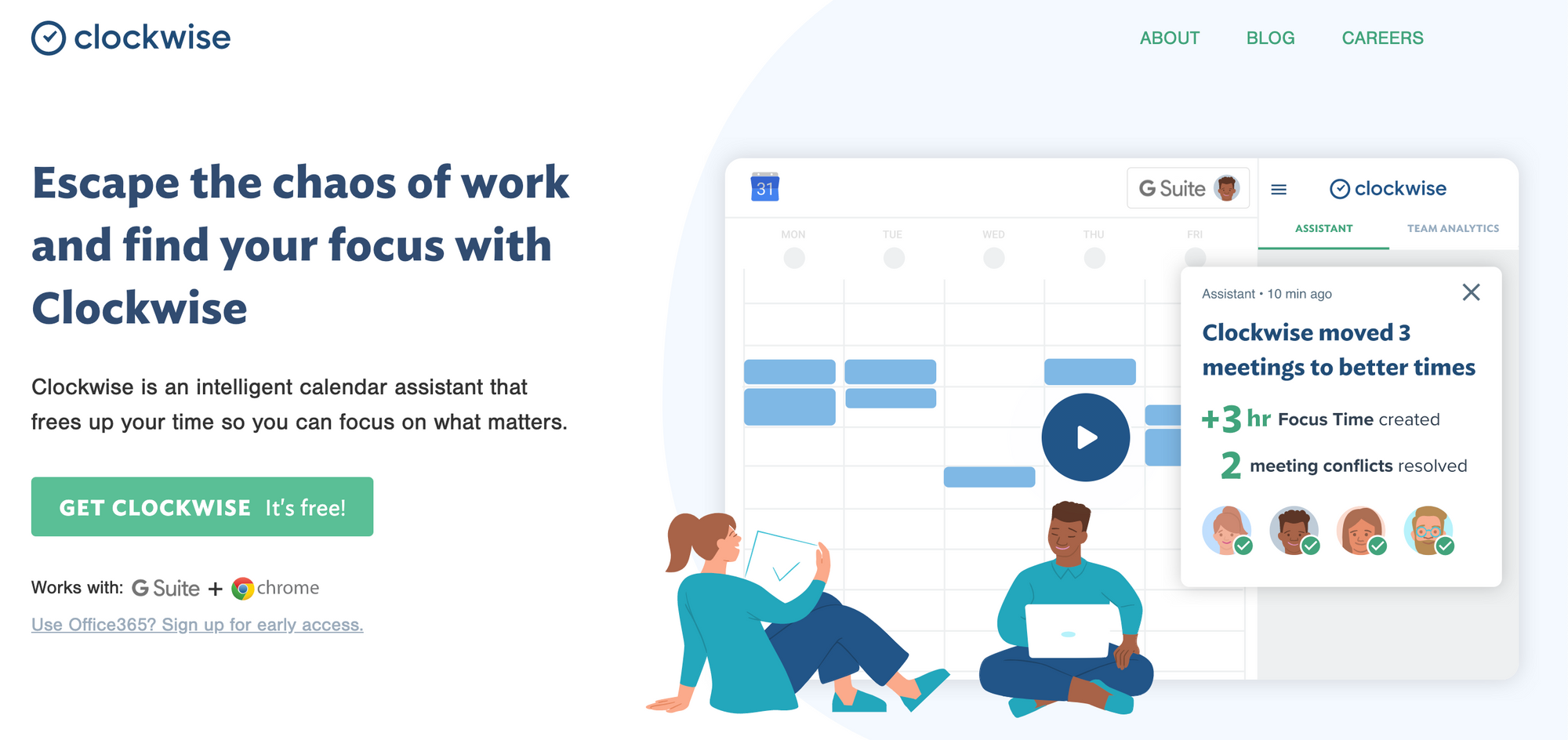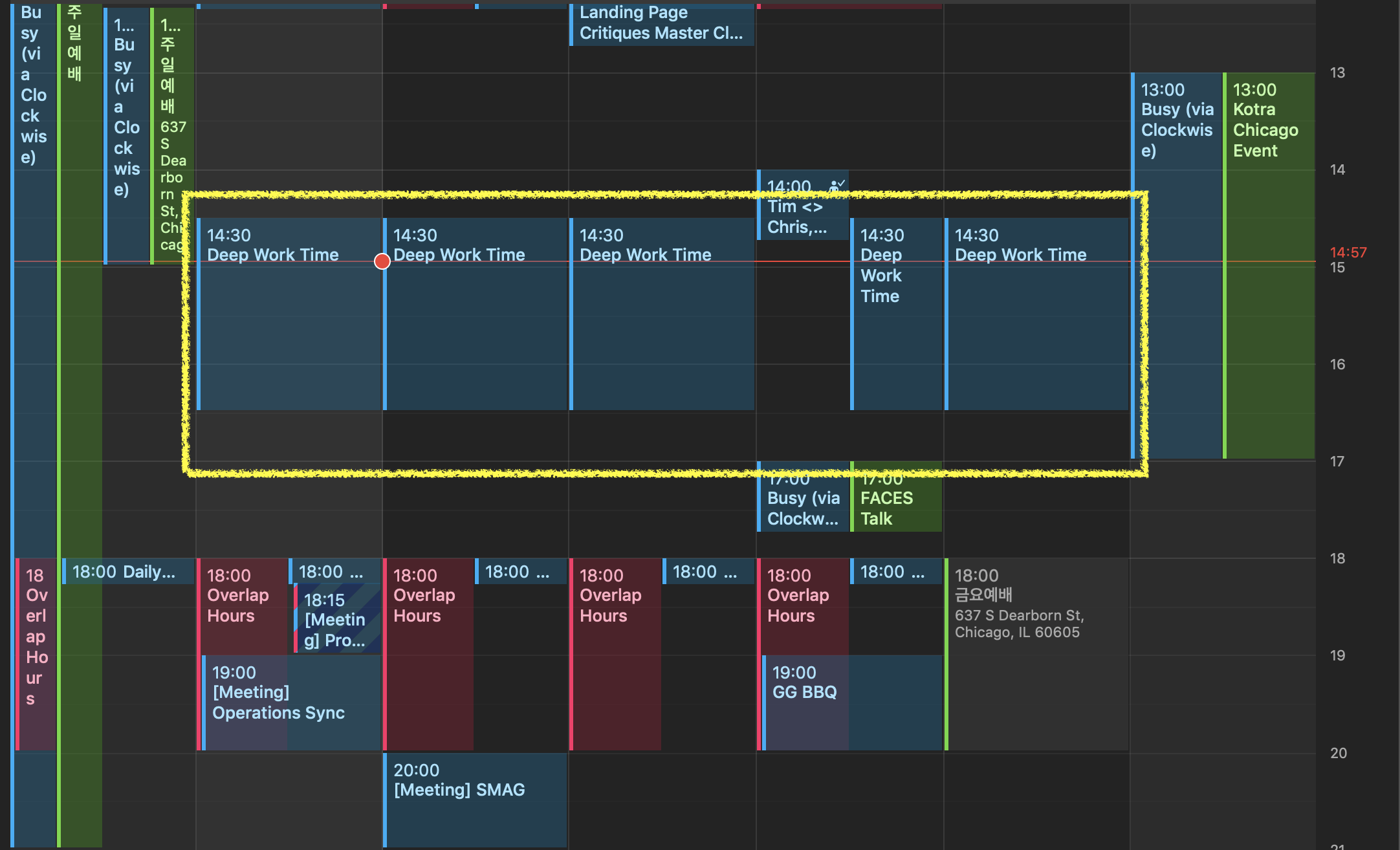How to be Productive in a World of Likes, Tweets, and DMs
Do focused work rather than shallow work. Practice routines and rituals so you could get into the habit of being productive.

TL;DR: Do focused work rather than shallow work. Practice routines and rituals so you could get into the habit of being productive.
Ironically, workplaces are some of the most distracting, noisy places for professionals today.1 Distractions and interruptions happen all the time: coworkers send emails and Slack messages your way literally 9-5. Your Twitter and Facebook apps scream for attention. Then you work at an open-office, people stop by and say hello, ask you questions, and pull you into meetings you hardly find useful and necessary.
It’s so difficult to get things done because of non-important work getting in your way.
And this is a problem. You are obviously less likely to perform as well as you should if you are constantly distracted at work.
I used to have this concern too when I was working at IBM and Walmart. I was frustrated by the amount of distraction happening around me. Today, I run a startup, and I can do more work than I did for those two companies, but I am less stressed, and for sure I get more done (note here that doing work doesn’t necessarily equate to getting things done). And I credit developing a system to do things for this.
As a founder, from building products, developing go-to-market channels, to writing this very blog post, I am constantly involved in a wide variety of tasks daily. Without a systematic approach to managing tasks and to-dos, I can’t even imagine how I will be free from distractions and noises and still be able to get 10,000 things done while producing high-quality results. And focus is key, in this very systematic approach. It’s the start of it all. No productivity hack will deliver unless you can focus.
The key is to secure enough ‘focus time’ every day
For creative workers like us, that is, designers, product managers, and developers (and more)2, our work is hard. Our kind of work requires us to solve incredibly challenging problems. And to deliver on those, you have to secure enough of your highly-focused, undistracted, almost-selfishly interruption-free time every day to excel at your craft.
“Deep work is the valuable work, the work we get paid to do. It’s not email, or messaging, or meetings. It’s thinking work; it’s the kind of work you need to do to solve hard problems, to become a master at your craft, etc.3”
- D. Keith Robinson, Lead Product Designer at Atlassian
And the reality is that it’s challenging to practice focused work when you have many noises coming your way. So instead of trying to work more to create enough time for creative work, I suggest you work backward: of the hours you intend to work daily, reserve the time you will be active on Slack and replying to emails. And work on more intellectually intriguing tasks for the rest of the day.

And during the ‘focus time,’ quit all unnecessary apps and put your phone down with Do Not Disturb mode on. When you focus, make sure you are at a place where your coworkers don’t interrupt you (empty conference rooms, coffee shops, etc.). You’ll start to realize you could get a lot more things done in a shorter time.
“Three to four hours a day, five days a week, of uninterrupted and carefully directed concentration, it turns out, can produce a lot of valuable output.4"
- Cal Newport
Side-tip 1: Decide amongst your team when you’ll do deep work
At Pixelic, we have decided to conduct all meetings within a four-hour time block, two hours in the morning and two hours later in the day. Outside of that four-hour block, you are encouraged to do work on your craft in a distraction-free environment. This way, you’ll be able to focus on the work that matters. You’ll be able to produce great things during this time. Unlike shallow work, your craft will actually create tremendous value.
Side-tip 2: Schedule meetings next to each other.
Another suggestion is to schedule meetings back-to-back so that you can knock out all of your meeting schedules in one single block. When you start having intervals in between meetings, which is a huge interruption to your cognitive focus, you will hardly ever get a good chunk of time to work on tough problems.
A useful tool I like to use for this use-case is Clockwise. Clockwise lets you automatically reschedule meetings to be next to each other so you could use the rest of your day on the more important stuff. Again, meetings are important, but not as important as executing on those meetings.

Side-tip 3: Rituals and Routines help.
I reserve two hours daily to practice deep work. I do this because (1) it helps me to stay on track and make it a routined system and (2) I can set my expectations with my colleagues that I will not be available during these two hours. You can do more than two hours, but make sure you do not exceed four hours, as research showed you start seeing diminishing returns past four hours.
In K. Anders Ericsson’s 1993 paper on the topic, titled “The Role of Deliberate Practice in the Acquisition of Expert Performance,” he writes somewhere around an hour a day of intense concentration seems to be a limit, while for experts this number can expand to as many as four hours - but rarely more.5
You could put write in your notebook or just remind yourself every time, but I like to pencil this 2-hour block into my calendar.

Rituals help as well. It’s a cognitive act of making deep work a systemic part of life. Each evening before I shut off for the day, I review the things I’ve done and things I need to do tomorrow and reallocate my task list as required. And I clean and organize my desktop and quit all applications on my laptop to signal to my unconscious mind, “I am done for the day.” I suggest creating your rituals to reinforce your mind to focus on work when working, and when you’re not working, you rest entirely.
Footnotes.
1. 54% of US workers reported they aren’t performing as well as they should due to workplace distractions, according to Udemy for Business 2018. https://research.udemy.com/wp-content/uploads/2018/03/FINAL-Udemy_2018_Workplace_Distraction_Report.pdf
2. I’m referring to the notion that programming is an ‘art’. I quote what coding prodigy Santiago Gonzalez said about programming: “Beautiful code is short and concise, so if you were to give that code to another programmer they would say, “oh, that’s well-written code. It’s much like as if you were writing a poem.”
3. Robinson, D. Keith. Deep Work: Experiments, Tips, and Lessons Learned. Medium. 2017. https://medium.com/designing-atlassian/deep-work-3cd27b5fd0f9
4. Newport, Cal. Deep Work (p. 16). Grand Central Publishing. Kindle Edition.
5. Newport, Cal. Deep Work (p. 150). Grand Central Publishing. Kindle Edition.



